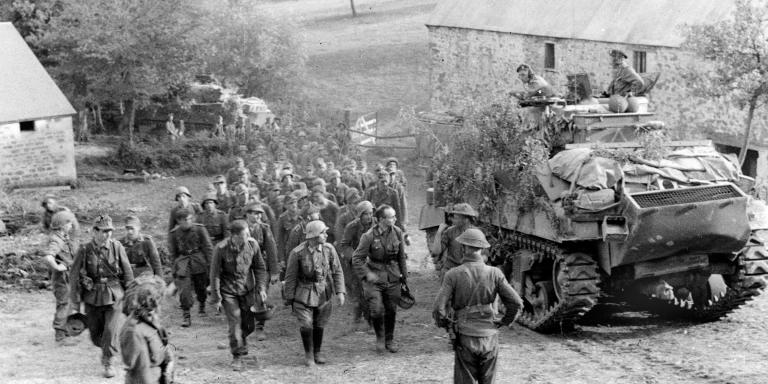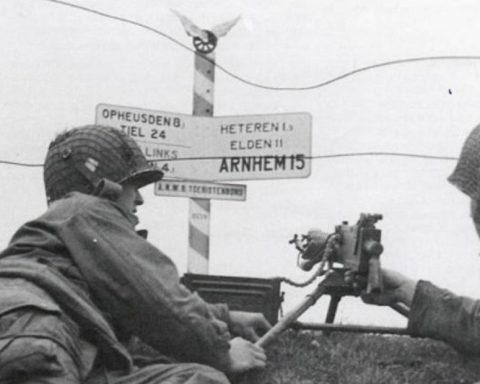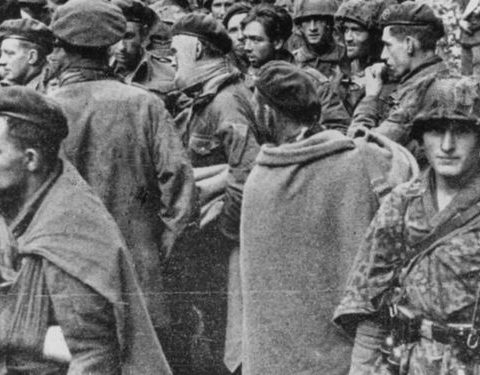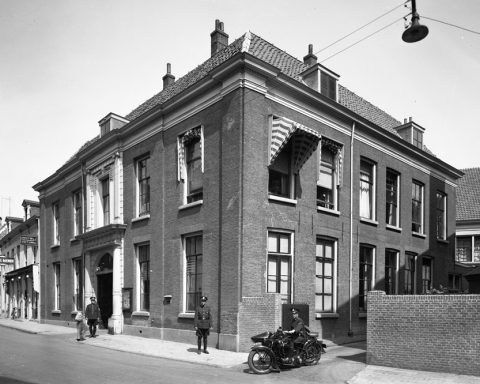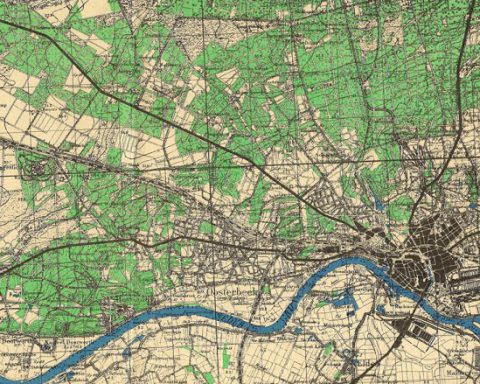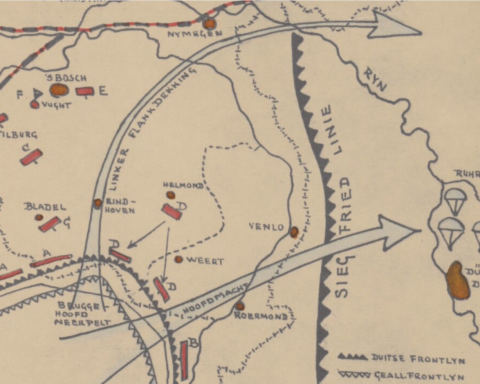In essence, the plans for Operation Market Garden boiled down to the idea of dropping more than 10,000 soldiers 70 miles behind the front line and race towards them as quick as possible with tanks in two days.
As it turned out, Market Garden was far too ambitious. The resistance of the German troops turned out to be much stronger than the Allied planners had expected.
Afterwards, there was a lot of criticism of the overly optimistic attitude of the Allied army leadership. The underestimation of German strength resulted in a painful Allied defeat, which also cost the lives of thousands of soldiers.
But if you look at the military situation on the Western Front in August 1944, the Allies’ optimism is understandable.
D-Day
The landings in Normandy on June 6, 1944 were successful. But initially the territorial gains of British, Canadian and American troops in France did not make much progress.
The French city of Caen should have been in Allied hands on the first day of the landings, but six weeks after D-Day German and Allied troops are still fighting fiercely for Caen.
Only seven weeks after D-Day, on July 27, 1944, the Allies managed to break out of Normandy during Operation Cobra. While the troops of American General Patton swarm over central and southern France, soldiers led by British Marshal Montgomery manage to encircle and destroy the German Fifth Army south of Caen.
Paris is liberated on August 19. On August 31, the Allies are on the banks of the Maas. There is hardly any large-scale German resistance in this part of the front anymore. The demoralized German troops flee from the advancing English armies. To Germany in the east and to the Netherlands in the north.
The Allies hardly have to fight and drive as fast as they can. The territorial gains that are being made are unprecedented. However, the Allied advance stalled at the end of August. As a result of the sudden territorial gains, the Americans and English have to deal with long supply lines to supply the army. The ports in Normandy are located more than 600 kilometers from the front. Due to a lack of fuel, the Allied advance comes to a grinding halt.
What now?
While Supreme Allied Commander General Eisenhower is currently sticking to the plan to advance on a broad front, British Marshal Montgomery devises a daring plan to advance to the IJsselmeer on the northern side of the front.
In Operation Comet, Montgomery wants the British elite troops of the 1st Airborne Division and the Polish airborne brigade to land at bridges in Eindhoven, Grave, Nijmegen and Arnhem and then advance with ground troops.
Operation Comet was finally canceled at the last minute on September 10. The risks of failure are considered too great. But the plans of Operation Comet form the basis for Operation Market Garden, which starts on Sunday, September 17, 1944.

